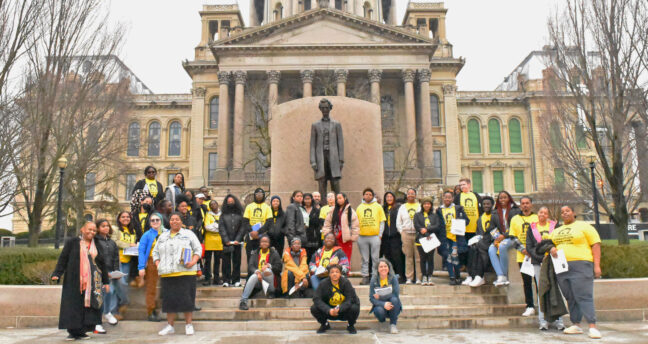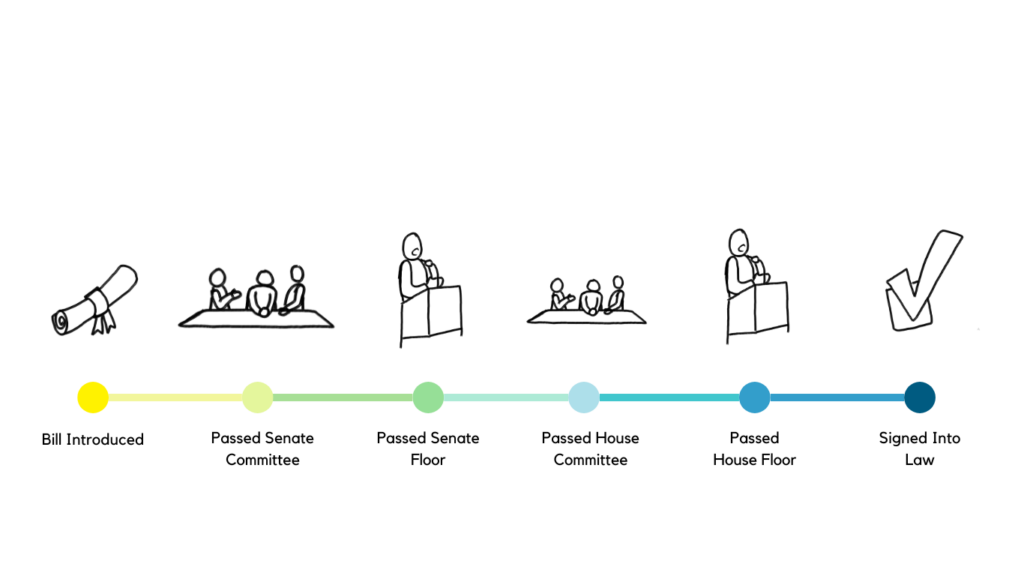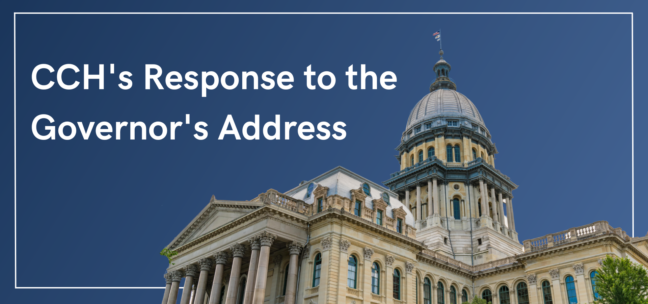By Doug Schenkelberg, Executive Director, February 15th 2023
Chicago Coalition for the Homeless (CCH) appreciates Governor Pritzker’s focus on addressing homelessness, housing, and poverty in his budget address and proposed Fiscal Year 2024 State of Illinois Budget. As the Governor stated in his address, “…we will have failed everyone in Illinois if we don’t place a higher priority on tackling poverty…” This proposed budget is a step in the right direction.
The Home Illinois initiative puts needed focus on addressing the needs of those experiencing homelessness and poverty. As the Governor noted, “In Illinois, Black people are eight times more likely to experience homelessness than white people…” and underlined tackling homelessness is fundamental to advancing racial equity. Moreover, he included people living doubled-up in his description of homelessness, which aligns with CCH’s annual estimate of homelessness for Illinois.
We are encouraged by the proposed investment in new funding to tackle homelessness. We look forward to working with the legislature and governor’s office to ensure the final budget includes increased funding for Emergency and Transitional Housing, Youth Homelessness, and Supportive Housing services. These funds can be used to make sure every person living in Illinois has a safe place to call their own along with supportive services to allow them to live independently. Homeless and housing providers have weathered the pandemic, changing their model to keep their clients, who are likely to be high-risk, safer. They have lost staff due to COVID as well as their inability to pay competitive wages.
The Governor’s proposal to increase the TANF monthly grant amount to 40% of the Federal Poverty Level (FPL) is a step in the right direction toward ending familial poverty in Illinois. The need is growing for Illinoisan families with the cost of living and prices soaring on basic but necessary items, and with the end of the emergency SNAP allotment families are looking for relief, especially those living in deep poverty. We encourage the legislature to work with the Governor’s office to include an increase in TANF to 50% of FPL to provide additional funds to pay off debt, to save, and to make the necessary purchases for their families.
The Governor and the General Assembly have shown through their actions over the past few years they want to invest in the needs of those that are too often pushed to the margins. We look forward to working with them this year to enact a 2024 budget that continues this work.
Read more about the state work CCH is doing.




